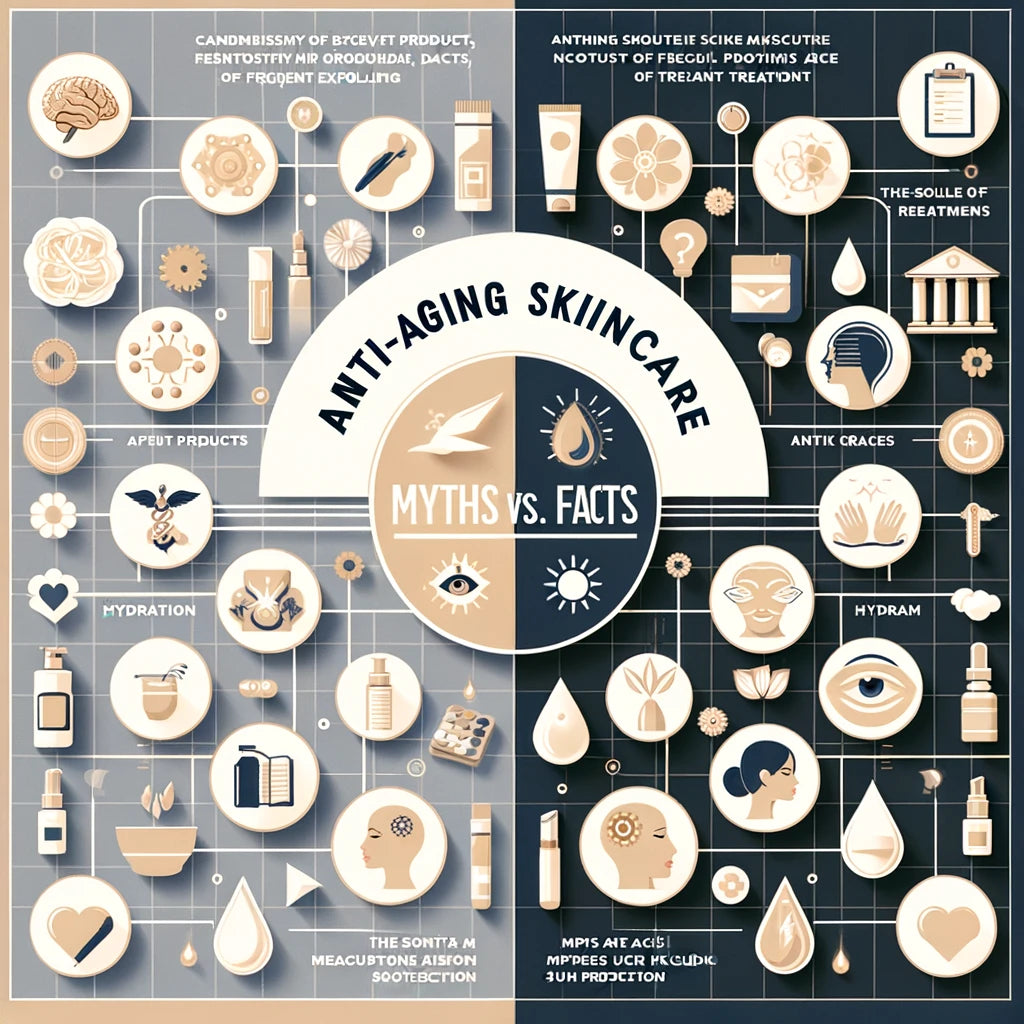In the quest for youthful, radiant skin, it's easy to get lost in a sea of misinformation. The world of anti-aging skincare is rife with myths that can often do more harm than good. As the social media manager for a leading face care brand, I'm here to guide you through the maze of anti-aging skincare, separating the myths from the facts. Armed with the right information, you can make informed decisions about your skincare routine and achieve the results you desire.
Myth 1: The More Expensive a Product, the Better It Works
Fact: Price doesn't always indicate effectiveness. Some high-end products do contain unique ingredients or patented technologies, but there are also affordable products packed with effective anti-aging ingredients like retinol, hyaluronic acid, and vitamin C. It's the formulation and concentration of these ingredients that matter, not the price tag.
Myth 2: Anti-Aging Products Only Work for Older Skin
Fact: Prevention is key when it comes to anti-aging skincare. Starting a regimen that includes sunscreen, antioxidants, and other active ingredients in your 20s or early 30s can help delay the signs of aging. It's never too early to protect your skin from environmental damage and the effects of aging.
Myth 3: You Only Need Sunscreen When It's Sunny
Fact: UV rays can penetrate clouds and even windows, causing photoaging and increasing the risk of skin cancer. Applying a broad-spectrum sunscreen with at least SPF 30 every day, regardless of the weather, is crucial in any anti-aging skincare routine.
Myth 4: The Harder You Exfoliate, the Better
Fact: Over-exfoliation can damage the skin barrier, leading to irritation, dryness, and even premature aging. Gentle exfoliation, using products suited to your skin type and following the recommended frequency, can help remove dead skin cells and promote cell renewal without causing harm.
Myth 5: If a Product Burns or Stings, It Means It's Working
Fact: While some active ingredients may cause a slight tingling sensation, burning or stinging is not a sign of effectiveness. Instead, it could indicate that your skin is reacting negatively to a product. If you experience discomfort, discontinue use and consult a dermatologist.
Myth 6: Drinking Water Keeps Your Skin From Aging
Fact: Hydration is essential for overall health, and while drinking water does contribute to keeping your skin hydrated, it's not a standalone anti-aging solution. External hydration and targeted skincare ingredients are necessary to address skin aging effectively.
Myth 7: Natural or Organic Products Are Always Better
Fact: "Natural" or "organic" doesn't necessarily mean a product is safer or more effective. Both natural and synthetic ingredients can be beneficial for the skin, and both can cause irritation depending on your skin type and sensitivities. The key is to look for evidence-based formulations, whether they're derived from nature or created in a lab.
Navigating the world of anti-aging skincare can be daunting, but understanding the myths and facts can empower you to take control of your skincare journey. Remember, the best anti-aging strategy is a comprehensive one that includes sun protection, hydration, and the use of evidence-based skincare ingredients. For personalized advice, always consult with a dermatology professional who can help tailor a regimen to your unique skin needs.

